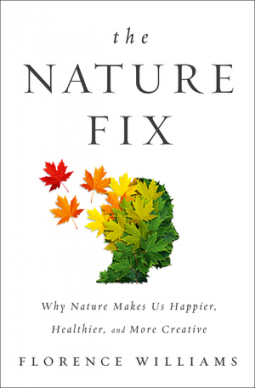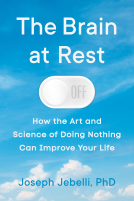
The Nature Fix
Why Nature Makes us Happier, Healthier, and More Creative
by Florence Williams
This title was previously available on NetGalley and is now archived.
Send NetGalley books directly to your Kindle or Kindle app
1
To read on a Kindle or Kindle app, please add kindle@netgalley.com as an approved email address to receive files in your Amazon account. Click here for step-by-step instructions.
2
Also find your Kindle email address within your Amazon account, and enter it here.
Pub Date Feb 07 2017 | Archive Date Jan 31 2017
Description
Advance Praise
Available Editions
| EDITION | Other Format |
| ISBN | 9780393242713 |
| PRICE | $26.95 (USD) |
| PAGES | 288 |
Featured Reviews
 Kim C, Educator
Kim C, Educator
The Nature Fix is a wonderful book in the tradition of Last Child in the Woods. Florence Williams invites us along to explore the relationship between people and nature. Be warned though, you will not want to put this down. It is chock full of great information!
What is it about nature that appeals to the human psyche? We write books about it, sing songs about it, explore it, classify and study it, and become obsessed with it. In this book, we learn from various scientists who have studied this relationship closely what benefits humans get from nature. The brain is such a complex thing that scientists still do not understand all there is to know about it. However, some of them have looked at how the brain reacts to being exposed to nature and found some very interesting results. The brain on nature is more creative, more adaptable, and your mood and health are better.
Williams travels to Japan, where people visit the woods for “forest bathing.” It helps people relax and washes away city stress. City workers come to the forest where guides take them into the woods and help them to experience nature up close. There are official “forest therapy” trails designated for just this practice in Japan. Using EEG and other technologies, researchers there are studying the effects of nature on the human brain.
In the US, scientist David Strayer has studied distracted driving, but he and other neuroscientists are also studying what exposure to nature does to the brain. They have found that there is a measurable increase in creativity after people are in nature. Williams goes into the wilderness with these scientists and interviews them for the book. She participates in the studies and explains it for the reader.
In South Korea, Williams visits a Healing Forest full of cypress trees. The phytoncides given off by the trees have beneficial effects on humans. The Forest Agency is planting trees all over in an effort to green the country. Recognizing the benefits of greenery, they have embraced nature in a way that other nations could learn from.
In another chapter, Williams discusses noise and its effect on humans. One effect of excess noise is chronic stress, with all the negative health issues it causes. The science behind all these studies are fascinating to me. We are such complex creatures and our world affects us in ways we haven’t even begun to understand yet. Sound can change our brains!
Williams goes on to take a river rafting trip with a group of women veterans with PTSD. She also profiles a student with ADHD who got major benefits from being put in an outdoor school, whereas he was having troubles in regular indoor school. She visits Finland, and walks on one of their “health nature trails” to see why the Finns score high on scales of happiness. She also details the effects of various views out our windows. People who can see nature outside are more likely to be healthier and calmer than those whose view is just a plain old brick wall.
Nature can lead to lower blood pressure, lower cholesterol, decreased heart rate, relaxation of muscles, and improved mood. People in many of the studies that Williams details report better mood, feeling more alive, and having a better psychological state. Walking has its benefits, but walking in nature increases those benefits.
It is evidence like this that confirms what we humans have already suspected – nature is good for us! We need more nature, not less. This entire book is full of evidence that nature has positive benefits to offer us. Even if it is not a grand vista, even something as simple as a shrub in a garden in the city can have a beneficial effect. We need to further study this and learn how to increase our nature time so that we can all be healthier individuals.
I really enjoyed this book and would love to see more written about this research. I think this is important for our future and that we need to make some changes to help us all gain the health benefits found in nature!


















